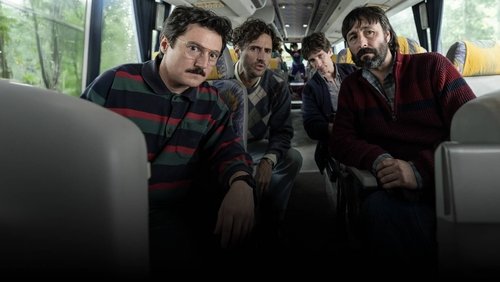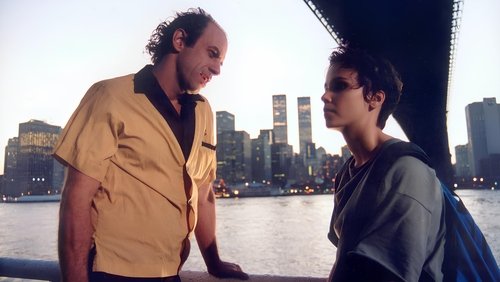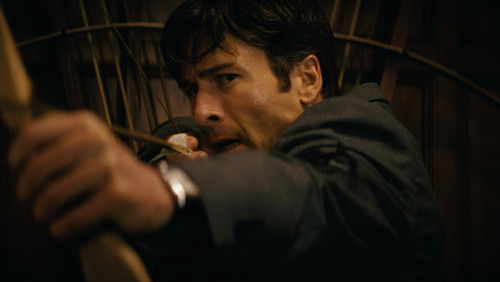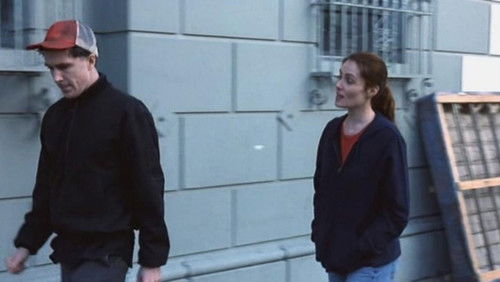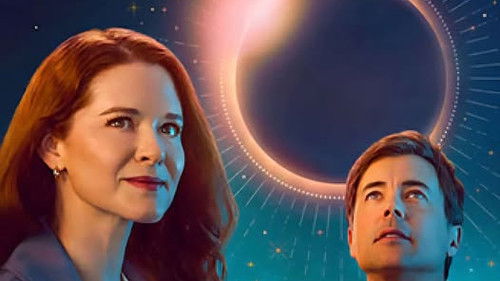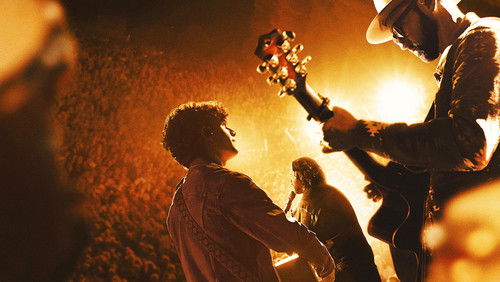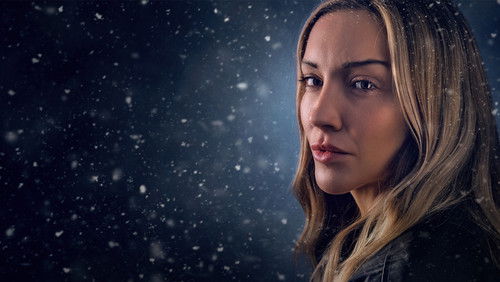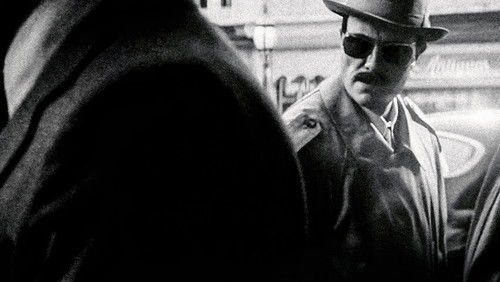My Blueberry Nights (2007)
53KMy Blueberry Nights: Directed by Kar-Wai Wong. With Jude Law, Norah Jones, Chad R. Davis, Katya Blumenberg. A young lonely woman takes a soul-searching journey across America to resolve her questions about love while encountering a series of offbeat characters along the way.
“Wong Kar Wai, the Hong Kong auteur, has made his first movie all in English and set in the USA–and built around Grammy Award singer Norah Jones. More coherent than many of Wongu0026#39;s efforts, itu0026#39;s been accused of being a u0026quot;trifleu0026quot;–or is it just that the plot seems silly now that itu0026#39;s all clear and in English? Like all Wongu0026#39;s work, this is a film thatu0026#39;s romantic, sad, and gorgeous to look at from first to last and full of strong, catchy pop-blues-country music (Ry Couder did the score). The beautiful Ms. Jonesu0026#39;s character, variously known as Elizabeth, Lizzie, Beth, or Betty, turns up at a New York café run by Jeremy (Jude Law), a guy from Manchester, England, drenched in love-longing because her man has dumped her for somebody else. Jeremy has a jar full of keys from patrons, each with a story, and Lizzie gives him hers, hoping her boyfriend will pick them up again. Jeremy has his own lost love, Katya (Cat Power); sheu0026#39;ll turn up later on just to say goodbye. Jeremyu0026#39;s keys stand for doors he himself doesnu0026#39;t want to close. u003cbr/u003eu003cbr/u003eThough Lizzieu0026#39;s boyfriend never turns up, Jeremy and Lizzie begin to have late night chats and sugar orgies, she eating a piece of blueberry pie with ice cream–picking blueberry because thatu0026#39;s the pie thatu0026#39;s always left over at the end of the day.u003cbr/u003eu003cbr/u003eThereu0026#39;s a fight in the café, and Jeremy plays around with a surveillance camera, which he seems to use as a kind of diary. Soon he will be alone, and Lissie will be away.u003cbr/u003eu003cbr/u003eThis time instead of improvising as in the past, which among other things contributed to his last film, 2046, a kind of summation of his Chinese themes and characters, taking five years to finish, Wong made up his story, with Norah in mind, and then had it turned into a finished screenplay (subject to plenty of revisions, of course) by crime novelist Lawrence Block. This one had a low budget and took just a couple of months to make. Shooting time, that is. It really took a year to do the editing, but Wong had that finished, to everyoneu0026#39;s surprise, just in time for My Blueberry NIghts to be shown as the opener at Cannes last year.u003cbr/u003eu003cbr/u003eLike Wongu0026#39;s other films, this one encapsulates several different stories. The second one comes when Lizzie decides to u0026quot;cross the streetu0026quot; to revisit Jeremy by the u0026quot;longest way possible,u0026quot; which turns out to be a trip to Memphis and Nevada and points in between, thousands of miles and nearly a year–a time of self-discovery, no doubt (though she doesnu0026#39;t observably change), and a period to avoid the inevitable romance with Jeremy. Landing in Memphis Lizzie works at two jobs, saving up money to buy a car. At a bar she encounters the drama of the drunken cop Arnie Copeland (David Strathairn) and his estranged wife, Sue Lynne (Rachel Weisz). Both are fine, acting their heads off in scenes heady with barroom dysfunction. For once, an on-screen drunk admits to going to Alcoholics Anonymous–and collecting a beginneru0026#39;s chip over and over and over. He throws the chips on the bar and they make a satisfying chink. But Arnie comes to a bad end, though Sue Lynne, despite rejecting him, keeps his tab open as she lights out for the territory. Through all of this Lizzie constantly sends Jeremy a stream of postcards that are a kind of intimate diary, and he desperately tries to track her down by phone and letter, without success.u003cbr/u003eu003cbr/u003eEvery young filmmaker dreams of making a road movie, Wong Kar Wai has said. Though heu0026#39;s now fifty, this is a kind of new beginning, or felt like one to him. But, he said, this movie isnu0026#39;t really a road movie; itu0026#39;s a vacation. And itu0026#39;s not about a journey, but about distance. Maybe the trip across the street for Lizzie is all a dream–one by Sam Shepherd, working with David Lynch. Sue Lynne gives Lizzie a generous donation for being Arnieu0026#39;s barmaid too, and she lights out for Nevada. There sheu0026#39;s working at a gambling dive where she meets a young woman named Leslie (Nathalie Portman) whou0026#39;s a pro, and they wind up leaving town together. Eventually, Lizzie ends up back at Jeremyu0026#39;s café, and heu0026#39;s waiting for her.u003cbr/u003eu003cbr/u003eComing after As Tears Go By, Days of Being Wild, Chungking Express, Ashes of Time, Fallen Angels, Happy Together, In the Mood For Love, and 2046, Wongu0026#39;s excursion into America is completely consistent and logical. Those who seem disappointed, may miss the ellipses and madcap improv of the earlier films, and may have failed to notice that they were full of pop novel gimmicks and romantic cuteness. Wongu0026#39;s sentimentality passes muster because of cryptic story lines, poetic voice-overs, hypnotic uses of music, and adventurous camera work–mostly by Christopher Doyle, here replaced by the half-French and wholly brilliant Darius Khondji –made infinitely rich by complex editing. My Blueberry Nights is full of criss-cross angles, fast overlaps, closeups so shallow atmospheric Americana may go unnoticed, till a lovely panorama flits by. Color is typically warm and dense. The effect is to make every frame a pleasure.u003cbr/u003eu003cbr/u003eReciting Wong Kar Waiu0026#39;s list of features brings home how he single-handedly made the Eighties and Nineties an exciting cinematic time, from the first days when you had to go to a theater on the edge of Chinatown, and then you watched badly subtitled Hong Kong prints found in esoteric video shops, to the time when Tarantinou0026#39;s Miramax label, Rolling Thunder, distributed Chungking Express in a good print with clear titles and the secret was out.u003cbr/u003eu003cbr/u003eMaybe Wong never did anything better than Days of Being Wild, the first film in which he became truly himself. But what does it matter? The quintessential stylist, he cannot make a film that doesnu0026#39;t give rich aesthetic pleasure.u003cbr/u003eu003cbr/u003eUS opening date April 18, 2008.”

